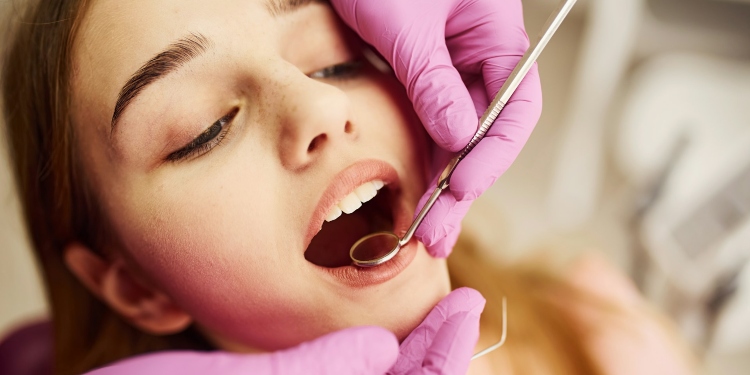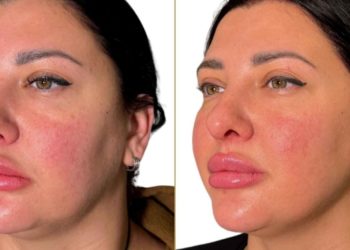Achieving a brighter smile is a goal for many, but for those with sensitive teeth, the journey to whiter teeth can be a delicate process. Sensitivity can make whitening treatments uncomfortable, but that doesn’t mean you have to forgo the benefits of a radiant smile. Fortunately, there are teeth whitening options specifically designed to cater to sensitive teeth. Understanding these options and the precautions to take can help you achieve the best results without compromising your comfort.
Understanding Tooth Sensitivity and Whitening
Tooth sensitivity is a common issue that can arise from various factors, such as enamel erosion, gum recession, or exposed dentin. When teeth are sensitive, they react to stimuli like cold, heat, or sweet foods with discomfort or pain. Whitening agents, particularly those containing peroxide, can exacerbate this sensitivity by penetrating the enamel and reaching the underlying dentin, where the nerves reside.
Before embarking on any whitening treatment, it’s crucial to consult with a dentist. They can assess the level of your sensitivity and recommend the most suitable whitening method. This personalised approach ensures that you achieve the desired results without causing unnecessary discomfort.
Professional In-Office Whitening for Sensitive Teeth
For those with sensitive teeth, professional in-office whitening treatments offer a safe and effective option. These treatments are supervised by a dentist, allowing for the use of desensitising agents that help to minimise discomfort. The custom-fitted trays used in these treatments ensure that the whitening gel is applied evenly, reducing the risk of irritation.
One of the key advantages of professional whitening is the ability to achieve immediate results. Unlike at-home options that require prolonged use, in-office treatments can deliver noticeable improvements in a single session. The controlled application of the whitening gel, along with the use of lower concentrations of peroxide, ensures that sensitive teeth are not subjected to unnecessary stress.
At-Home Whitening Strips Designed for Sensitivity
If you prefer the convenience of whitening your teeth at home, there are options available that cater to sensitive teeth. Whitening strips with low-concentration peroxide are a popular choice for those looking to brighten their smile without exacerbating sensitivity. These strips often contain added desensitising ingredients that help to alleviate discomfort during the whitening process.
The gradual approach of at-home whitening strips is another benefit. By using a lower concentration of peroxide over a longer period, the risk of irritation is reduced. This makes it possible to achieve a whiter smile while keeping sensitivity at bay. However, it’s important to follow the instructions carefully and not exceed the recommended usage time to avoid any potential issues.
Gentle Whitening Toothpaste
For individuals with mild sensitivity, whitening toothpaste can provide a gentle yet effective solution. These toothpastes typically contain non-abrasive formulas with mild whitening agents that gradually lighten the teeth over time. They often include potassium nitrate, a compound known for its sensitivity-relieving properties, making them suitable for daily use.
While whitening toothpaste may not offer dramatic results as quickly as other methods, they are a good option for maintaining a brighter smile without irritation. The slow and steady approach of these toothpastes ensures that sensitive teeth are protected while still enjoying the benefits of a whiter smile.
Natural Whitening Methods for Sensitive Teeth
For those who prefer a more natural approach, some methods can help whiten teeth while being gentle on sensitivity. One such method is oil pulling, a traditional practice that involves swishing oil, such as coconut oil, in the mouth to remove stains and improve oral health. Although the whitening effects of oil pulling are not as pronounced as other methods, it can be a gentle way to maintain a clean and healthy smile.
Fruits and vegetables that are naturally abrasive, like apples and celery, can also help to remove surface stains on teeth. However, it’s important to exercise caution with DIY whitening methods. Some natural remedies, such as using baking soda or lemon juice, can be too harsh on sensitive teeth and may lead to increased sensitivity or enamel damage. Consulting with a dentist before trying any natural methods is advisable to ensure they are safe and effective for your teeth.
Desensitising Treatments Before and After Whitening
To further protect sensitive teeth during the whitening process, desensitising treatments can be used before and after whitening. Professional fluoride treatments are one option that helps to strengthen enamel and reduce sensitivity. These treatments can be administered by a dentist before starting any whitening regimen.
Over-the-counter desensitising gels are another option. These gels can be applied to the teeth before and after using whitening products to help manage sensitivity. Maintaining proper oral hygiene is also essential in managing sensitivity and prolonging the results of whitening treatments. Brushing with a soft-bristled toothbrush and using fluoride toothpaste can help to keep sensitivity under control.
Alternative Cosmetic Treatments for Whiter Teeth
For those with severe sensitivity, traditional whitening methods may not be the best option. Instead, alternative cosmetic treatments can provide a solution. Dental bonding, for instance, can be used to cover localised discolouration on the teeth. This method involves applying a tooth-coloured resin to the affected areas, offering a long-term solution without the use of whitening agents.
Veneers are another option for achieving a brighter smile, particularly for those with significant staining or discolouration. Veneers are thin, custom-made shells to fit over the front of the teeth, providing a natural-looking, white appearance. While veneers are a more invasive option, they can offer dramatic results for those who are unable to undergo traditional whitening due to sensitivity.
Conclusion
Teeth whitening for sensitive teeth is not only possible but can also be highly effective with the right approach. Whether you choose professional in-office treatments, at-home whitening products designed for sensitivity, or explore alternative cosmetic options, there’s a solution to suit your needs. For those in the area, seeking Teeth Whitening Birmingham services ensures you have access to tailored advice and care that addresses your specific sensitivity levels. Consulting with a dentist is crucial to ensure your chosen method is safe and effective, allowing you to achieve the bright, white smile you desire without compromising your comfort or oral health.
David Prior
David Prior is the editor of Today News, responsible for the overall editorial strategy. He is an NCTJ-qualified journalist with over 20 years’ experience, and is also editor of the award-winning hyperlocal news title Altrincham Today. His LinkedIn profile is here.













































































